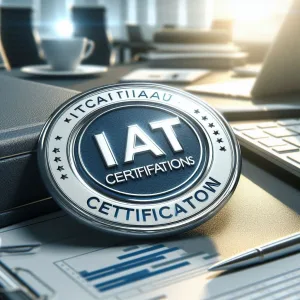Operational auditing is a systematic evaluation of an organization’s operational processes, focusing on efficiency, effectiveness, and alignment with strategic objectives. The primary aim of operational audits is to provide management with an impartial assessment of how well resources are utilized and how effectively management practices are implemented. This type of audit goes beyond traditional financial checks, delving into the operational aspects that drive organizational performance. By identifying areas for improvement, operational audits can help organizations streamline processes, cut costs, and enhance overall productivity [10][15].
In the context of sustainability, operational audits play a crucial role in assessing how well an organization is meeting its sustainability targets. These audits evaluate not only the financial implications of operations but also their environmental and social impacts. By analyzing operational processes, auditors can uncover inefficiencies that may hinder sustainability efforts, such as excessive resource consumption or waste generation. This comprehensive approach allows organizations to align their operational practices with their sustainability goals, ensuring that they are not only compliant with regulations but also contributing positively to their communities and the environment [9].
Sustainability goals have become increasingly important in contemporary business practices, driven by growing consumer awareness and regulatory pressures. Organizations are now expected to demonstrate their commitment to environmental stewardship, social responsibility, and ethical governance. These goals often encompass a wide range of objectives, including reducing carbon footprints, minimizing waste, and promoting social equity. As such, operational audits can serve as a vital tool for sustainability officers and internal auditors, providing insights that help organizations track their progress toward these targets and make informed decisions about resource allocation and process improvements [6][8].
Operational auditing is essential for organizations aiming to achieve their sustainability goals. By evaluating operational efficiency and effectiveness, these audits not only enhance organizational performance but also support the broader mission of sustainability, ensuring that businesses can thrive while being responsible stewards of the environment and society.
The Role of Internal Audit in Sustainability Initiatives
As organizations increasingly prioritize sustainability, the role of internal auditors is evolving to support these initiatives effectively. Internal audit functions are now seen as critical partners in achieving sustainability goals, ensuring that organizations not only comply with regulations but also align their operations with broader environmental, social, and governance (ESG) objectives.
Evolving Role of Internal Auditors in Promoting Sustainability
Internal auditors are transitioning from traditional compliance-focused roles to becoming strategic advisors in sustainability efforts. This shift involves:
- Assessing Sustainability Practices: Auditors evaluate the effectiveness of sustainability practices within the organization, identifying areas for improvement and ensuring that sustainability initiatives are integrated into the overall business strategy [4].
- Providing Objective Assurance: They offer independent assessments of sustainability reporting and practices, helping organizations to enhance transparency and accountability in their sustainability efforts [12].
- Identifying Risks and Opportunities: Internal auditors play a crucial role in identifying ESG risks and opportunities, enabling organizations to mitigate potential impacts and capitalize on sustainable practices that can lead to cost savings and improved operational efficiency [13].
Integration of Sustainability Metrics into Audit Planning
To effectively support sustainability goals, internal audit functions must integrate sustainability metrics into their audit planning processes. This includes:
- Developing Comprehensive Audit Plans: By incorporating sustainability metrics, internal auditors can ensure that audits cover key performance indicators (KPIs) related to environmental impact, resource utilization, and social responsibility [3][9].
- Evaluating Resource Utilization: Auditors assess how resources are utilized in relation to sustainability targets, helping organizations to uncover inefficiencies and streamline operations [4].
- Aligning with Strategic Objectives: The integration of sustainability metrics allows internal audits to align their findings with the organization’s strategic objectives, ensuring that sustainability initiatives are not only compliant but also effective in driving long-term value.
Importance of Collaboration Between Internal Audit and Sustainability Officers
Collaboration between internal auditors and sustainability officers is essential for the successful implementation of sustainability initiatives. This partnership can be fostered through:
- Shared Goals and Objectives: By working together, internal auditors and sustainability officers can establish common goals that align with the organization’s overall mission, ensuring that sustainability is prioritized across all functions [11].
- Cross-Functional Teams: Forming cross-functional teams that include both internal auditors and sustainability experts can enhance the effectiveness of audits, as diverse perspectives lead to more comprehensive assessments of sustainability practices [10].
- Continuous Improvement: Regular communication and collaboration enable both parties to share insights and best practices, fostering a culture of continuous improvement in sustainability efforts.
The intersection of operational audits and sustainability goals presents a significant opportunity for organizations to enhance their sustainability initiatives. By evolving their roles, integrating sustainability metrics into audit planning, and fostering collaboration, internal auditors can play a pivotal role in helping organizations achieve their sustainability targets while driving operational excellence.
Operational Audits: Tools for Measuring Sustainability Performance
Operational audits play a crucial role in helping organizations align their processes with sustainability goals. By evaluating operational practices, these audits can identify inefficiencies and areas for improvement, ultimately supporting sustainability initiatives. Here are some key points on how operational audits can assess sustainability practices and performance:
Tools and Methodologies for Evaluating Sustainability
- Sustainability Management Software: Tools like EcoCart enable businesses to gather data for sustainability audits effectively. These platforms facilitate the collection and analysis of relevant data, making it easier to assess sustainability performance and identify areas for improvement [1].
- Protocols and Methodologies: Specific tools and methodologies are essential for measuring, monitoring, and reporting sustainability performance. These protocols guide organizations in conducting thorough assessments of their sustainability initiatives, ensuring that they are aligned with best practices and regulatory requirements [2].
- Evaluation Frameworks: The methodology for operational audits often includes stages such as defining objectives, executing assessments, and monitoring outcomes. This structured approach allows internal auditors to examine sustainability initiatives comprehensively, ensuring that all relevant factors are considered [6].
Key Performance Indicators (KPIs) Relevant to Sustainability
Operational auditing can help organizations establish and track KPIs that are critical for measuring sustainability performance. Some relevant KPIs include:
- Energy Consumption: Monitoring energy usage can help organizations identify opportunities for reducing their carbon footprint.
- Waste Management: Evaluating waste generation and disposal practices can lead to improved recycling and waste reduction strategies.
- Water Usage: Assessing water consumption can highlight areas for conservation and efficiency improvements.
- Supply Chain Sustainability: Analyzing the sustainability practices of suppliers can ensure that the entire supply chain aligns with the organization’s sustainability goals [9].
Operational auditing serves as a vital tool for organizations aiming to achieve their sustainability goals. By employing specific methodologies, tracking relevant KPIs, and learning from successful case studies, internal auditors can provide valuable insights that drive sustainable practices and enhance overall performance.
Identifying Risks and Opportunities in Sustainability Goals
Operational auditing plays a crucial role in helping organizations align their practices with sustainability targets. By systematically evaluating processes, these audits can identify risks and uncover opportunities that contribute to achieving sustainability goals. Here are some key points on how operational audits can support organizations in this endeavor:
Risk Assessment Techniques: Operational audits employ various risk assessment techniques to evaluate the effectiveness of sustainability practices. These techniques include:
- Document Review: Auditors analyze policies and procedures related to sustainability to ensure compliance and alignment with organizational goals. This step helps identify gaps in sustainability strategies that may pose risks to achieving targets [12].
- Data Analysis: A thorough examination of operational data allows auditors to identify irregularities or inefficiencies that could hinder sustainability efforts. By analyzing metrics related to resource usage, waste generation, and energy consumption, auditors can pinpoint areas that require improvement [15].
- On-Site Inspections: Conducting on-site assessments provides auditors with firsthand insights into operational practices. This approach helps in identifying potential risks associated with environmental impacts and social responsibilities [4].
Uncovering Inefficiencies: Operational audits are instrumental in revealing inefficiencies within an organization’s sustainability practices. By evaluating processes across various operational areas—such as production, supply chain management, and resource allocation—auditors can identify:
- Resource Utilization Issues: Inefficient use of resources can lead to increased costs and environmental impacts. Auditors can recommend strategies to optimize resource utilization, thereby enhancing sustainability [14].
- Operational Bottlenecks: Identifying bottlenecks in processes can help organizations streamline operations, reduce waste, and improve overall efficiency. This not only supports sustainability goals but also contributes to cost savings [13].
Operational auditing serves as a vital tool for organizations aiming to achieve their sustainability goals. By identifying risks and uncovering opportunities for improvement, these audits enable organizations to enhance their sustainability practices, ultimately leading to a more efficient and responsible operational framework.
Creating a Sustainable Audit Framework
In the context of internal auditing, operational audits play a crucial role in aligning organizational practices with sustainability goals. By integrating sustainability into the audit process, organizations can not only enhance their operational efficiency but also contribute to broader environmental and social objectives. Here’s how organizations can develop a framework for conducting sustainability-focused operational audits.
Steps for Integrating Sustainability into the Audit Process
- Define the Audit Scope: Establish what aspects of sustainability will be included in the audit. This could encompass environmental impact, social responsibility, and governance practices. Clearly defining the scope ensures that the audit addresses relevant sustainability issues [5].
- Engage Stakeholders: Involve key stakeholders early in the audit process. This includes sustainability officers, department heads, and external experts. Their insights can help identify critical areas of focus and ensure that the audit aligns with organizational sustainability goals [4][10].
- Incorporate ESG Factors: Integrate Environmental, Social, and Governance (ESG) criteria into the audit framework. This involves assessing the effectiveness of current policies and controls related to sustainability and identifying gaps that need to be addressed [6][9].
- Develop Audit Criteria: Create specific criteria for evaluating sustainability performance. This could include metrics related to carbon emissions, resource usage, and compliance with sustainability regulations. Establishing clear criteria helps in measuring progress and identifying areas for improvement [8][14].
- Implement Continuous Monitoring: Establish a monitoring function to track sustainability metrics over time. This allows for ongoing assessment and adjustment of strategies to meet sustainability targets effectively.
Importance of Stakeholder Engagement and Communication
Effective stakeholder engagement is vital for the success of sustainability audits. Engaging stakeholders fosters collaboration and ensures that diverse perspectives are considered. It also enhances transparency and accountability, which are essential for building trust in sustainability initiatives. Regular communication with stakeholders throughout the audit process helps in:
- Identifying Risks: Stakeholders can provide valuable insights into potential risks related to sustainability that may not be apparent to auditors alone [10].
- Enhancing Buy-in: Involving stakeholders in the audit process increases their commitment to sustainability goals, making it more likely that recommendations will be implemented [4].
- Facilitating Knowledge Sharing: Stakeholders can share best practices and lessons learned, which can improve the overall effectiveness of the audit [12].
Sustainability Audit Readiness Checklist
To evaluate their readiness for a sustainability audit, organizations can use the following checklist:
- Have sustainability goals been clearly defined and communicated?
- Is there a dedicated team or individual responsible for sustainability initiatives?
- Are relevant data and metrics related to sustainability readily available?
- Have stakeholders been identified and engaged in the audit process?
- Is there a framework in place for monitoring and reporting on sustainability performance?
- Are there existing policies and controls that address sustainability risks?
- Is there a commitment from leadership to support sustainability initiatives?
By following these steps and utilizing the checklist, organizations can create a robust framework for conducting operational audits that not only assess compliance and efficiency but also drive progress toward sustainability targets. This approach not only enhances operational performance but also positions organizations as responsible stewards of the environment and society.
Challenges and Considerations for Operational Audits in Sustainability
Operational auditing plays a crucial role in helping organizations align their practices with sustainability goals. However, several challenges and considerations must be addressed to ensure that these audits effectively support sustainability initiatives. Here are some key points to consider:
- Common Challenges in Auditing Sustainability Efforts: Internal auditors often face significant hurdles when integrating sustainability into their operational audits. One major challenge is obtaining accurate and reliable data related to sustainability metrics. The complexity of environmental, social, and governance (ESG) factors can make it difficult to assess performance effectively, leading to potential gaps in reporting and compliance [11]. Additionally, the lack of standardized methodologies for evaluating sustainability practices can hinder the audit process, making it challenging to compare results across different departments or projects.
- Need for Specialized Training and Knowledge: To effectively audit sustainability efforts, internal auditors must possess specialized training and knowledge in sustainability metrics. This includes understanding the specific indicators that reflect an organization’s sustainability performance, as well as the regulatory requirements that govern ESG reporting [12]. Without this expertise, auditors may struggle to evaluate the effectiveness of sustainability initiatives or identify areas for improvement, ultimately limiting the impact of their audits on organizational goals [6].
- Importance of Leadership Support: Successful operational audits that focus on sustainability require strong support from organizational leadership. When leaders prioritize sustainability and actively engage in the audit process, it fosters a culture of accountability and commitment to achieving sustainability targets [4]. Leadership support can also facilitate the allocation of necessary resources for training auditors and implementing effective auditing practices, ensuring that sustainability goals are integrated into the overall operational strategy.
While operational audits are essential for driving sustainability initiatives, addressing the challenges of data reliability, enhancing auditor expertise, and securing leadership support are critical for aligning these audits with sustainability goals. By overcoming these obstacles, organizations can leverage operational audits to not only assess their current sustainability efforts but also to identify opportunities for improvement and innovation in their practices.
Conclusion: The Future of Operational Audits in Supporting Sustainability
As organizations increasingly prioritize sustainability, operational auditing emerges as a crucial tool in aligning business practices with environmental, social, and governance (ESG) objectives. The value of operational audits in achieving sustainability goals cannot be overstated. These audits provide a comprehensive evaluation of an organization’s processes, systems, and activities, focusing on efficiency and effectiveness. By identifying inefficiencies and areas for improvement, operational audits help organizations streamline operations, reduce waste, and enhance resource utilization, all of which are essential for meeting sustainability targets [12][13].
Moreover, the collaboration between internal audit and sustainability teams is vital for fostering a culture of accountability and continuous improvement. Internal auditors can play a significant role in assessing ESG risks and ensuring that sustainability strategies are effectively integrated into the organization’s overall operations. This partnership not only enhances the credibility of sustainability initiatives but also ensures that they are aligned with the organization’s strategic objectives [2][3].
To maximize the impact of operational auditing on sustainability, organizations should adopt best practices that promote transparency, stakeholder engagement, and regular performance evaluations. Continuous improvement in audit processes will enable organizations to adapt to evolving sustainability challenges and regulatory requirements, ensuring that they remain at the forefront of responsible business practices [9].
In conclusion, as the landscape of sustainability continues to evolve, operational audits will remain a pivotal aspect of organizational oversight. By leveraging the insights gained from these audits, organizations can not only achieve their sustainability goals but also enhance their overall operational performance, paving the way for a more sustainable future.
Find out more about Shaun Stoltz https://www.shaunstoltz.com/about/
This post was written by an AI and reviewed/edited by a human.



